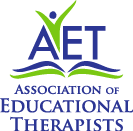Master of Arts in Educational Therapy
Master of Arts in Educational Therapy
100% Online Degree Program
Scholarships and Flexible Financing Available
Do you want to help students discover a love of learning? Are you an educator or someone looking for a career change who seeks to better serve struggling students? NDNU is proud to be one of only three schools in the U.S. to offer a Master of Arts in Educational Therapy degree. This important area of in-depth study will give you a foundation. If you already have the skills, we can further develop your skills in assessment and intervention techniques to help children and adults who have various types of learning challenges.
Distinctions of the MA Educational Therapy Program
Built for working professionals, the program has a flexible format and schedule. We offer an Accelerated MA ET program for teachers who have a SPED credential and have been working in the classroom/schools setting for 3 years.
Click here to view the updated AET Fact Sheet
Donwload MA Education Therapy Program Flyer
Is an MA in Educational Therapy Program Right For You? Find Out!
Take the MA in Educational Therapy Program Readiness Quiz
This fun, online quiz takes 3 minutes to complete and you’ll get a personalized report. Identify your strengths and social style plus some details about your readiness for this degree. Get Your MA in Educational Therapy Program Readiness Report Now!
This program requires 33 Units to complete. Sample Courses:
- Neuropsychological Principles in Education
- Explore the integration of neuropsychological and educational frameworks to enhance understanding of learning disabilities and remediation. We focus on key neuropsychological concepts that provide insight into the nature of learning and learning difficulties.Students also gain a basis to think broadly and carefully about the educational needs of individual students.
- Instructional Strategies for Students with Reading Difficulties
- Learn about the theories, issues, strategies, and materials related to assessment and instruction of students with reading difficulties, including spelling and written language. Specific methods of instruction and the selection and development of materials that match the assessed needs of the individual are emphasized.
- The Roles of Educational Therapists
- This course emphasizes: historical and current perspectives on educational therapy; developing and managing a professional practice; assessment and instruction; and effective communication strategies within school, family, and service communities.
PROGRAM LEARNING OUTCOMES
Learn how to help young and adult students with:
- Dyslexia and other difficulties in reading
- ADHD and other attention issues
- Dyscalculia or difficulties in mathematics
- Difficulties in written language and spelling
- Challenges in study and organizational skills, including time management and executive function disorders
Streamlined Admissions. See how simple it is to get started.
Eligible applicants will need to meet the following requirements:
- A four- year bachelor's degree from an accredited institution
- Transcripts from all colleges, universities and graduate programs attended
- A cumulative grade point average of 3.0 or higher
- Two academic and/or professional recommendations
- A personal interview with the Program Director
- Evidence of prerequisite knowledge and relevant experience in an educational setting
- Statement of Intent: describe your interest in the NDNU MA Educational Therapy Program, including your relevant educational experience and the personal and professional qualities you would bring to the program
- International students refer to admission requirements in the current catalog
When you are ready to take that next step in advancing your career, contact us to learn how we can be the catalyst to make it happen sooner. Accepting applications year-round.
Frequently Asked Questions
An Educational Therapist (ET) offers children and adults with learning disabilities a wide range of intensive, individualized interventions designed to remediate learning issues.
The focus of the work in educational therapy is on the specific academic needs of the individual client teaching strategies to promote learning and remediation.
- Dyslexia and other difficulties in reading
- ADHD and other attention issues
- Dyscalculia or difficulties in mathematics
- Difficulties in written language and spelling
- Challenges in study and organizational skills, including time management and executive function disorders
No. An Educational Therapist does not need a teaching credential to practice or to work in independent (non-public) schools, in learning clinics, or private practice.
While a tutor generally focuses on teaching specific subject matter, an educational therapist’s focus is broader. Educational therapists work as a team with parents, teachers, and other professionals to set goals and develop an intervention plan that addresses not only academic difficulties, but also psycho-educational and socio-emotional aspects of life-long learning through an eclectic combination of individualized intervention strategies.
Educational Therapy offers children and adults with learning disabilities and other learning differences a wide range of intensive, individualized interventions designed to remediate learning challenges and build resilience.
Educational therapy demystifies learning differences and stimulates clients’ awareness of their strengths so they can use those strengths to their best advantage to overcome or compensate for areas of weakness.
Educational therapists create and implement a treatment plan that utilizes information from a variety of sources including the client’s social, emotional, psychoeducational, and neuropsychological profiles.
Check out the recent Stress-Free IEP Podcast featuring Polly Mayer (Click Here)
Polly Mayer’s book review of Small Teaching: Everyday Lessons from the Science of Learning in The Educational Therapist journal (Click Here)
Marion Marshall’s Psychology Today Blog on How Educational Therapists Can Unlock Student Potential
Excerpts from Polly & Marion’s workshop presentations at the AET Annual Conference 2024:
Cultivating Ethical Thinking: Tools to Support Your Work (Click Here)
Marion Marshall’s Psychology Today Blog on Seeing the Many Different Faces of Attention

Polly Mayer M.Ed.ET/P
Program Director, MA Educational Therapy
PMayer@ndnu.edu
Polly Mayer was born in Chicago and spent her K-2 years in a public school in Paris. She is deeply committed to anti-racist, abolitionist teaching, and considers education one of the most important social justice issues of our time. Polly moved to San Francisco and taught 1st grade as an assistant teacher at the San Francisco Day School. While attending Mills College, she worked as a student teacher in Oakland and Vallejo.
Polly received her MA Educational Therapy degree from Holy Names University (HNU) and worked there as a learning specialist and educational therapist for ten years, eventually becoming the Clinic Director at Raskob Learning Institute and Day School on the Holly Names University campus. Since 2019, she has served as an Assistant Professor and the Director of the Educational Therapy program in the School of Education at HNU and joined NDNU as the Program Director for Educational Therapy in May 2023.
Polly is a member of several professional organizations, which include: Learning & the Brain, International Dyslexia Association, National Council of Teachers of Mathematics. She is a member of the Board of Directors of the Association of Educational Therapists (AET), where she chairs the Professional Affairs Committee, and also is a member of AET’s Social Justice Committee.
MA Educational Therapy Program Advisory Committee
(Prufrock Press, Forthcoming, early 2024)

The Notre Dame de Namur University’s MA Educational Therapy Program is approved by the Association of Educational Therapists. It is designed to meet the academic requirements for Associate ET membership, as well as to provide advanced training for practicing educational therapists. The courses have been developed with the approval of AET and are offered for individuals who have an advanced degree and/or credential in education, special education, learning disabilities, speech/language, psychology, or related fields. Admission to the training program is based upon one’s background in education or learning disabilities. For those without a special education background, the certificate courses must be combined with specific electives to fulfill the academic requirements for Associate-level membership in AET.
Educational Resources
Marion Marshall, MS, BCET Publications
Marion Marshall's Psychology Today Blog on How Educational Therapists Can Unlock Student Potential (Click Here)
Marion Marshall's Psychology Today Blog on Ethics, Boundaries, and Actions (Click Here)
Part-time faculty member, Marion Marshall, MS, BCET, has an article in the University Business Journal's latest issue, about how educational therapists can help students and universities succeed. Her latest book, (her third!), Ethics in Educational Therapy: A Practical Guide will be published this fall!
Ethical Decision Making in Educational Therapy: A Practical Guide by Marion Marshall, MS, BCET
Published in 2024, Marion Marshall's book, "Ethical Decision Making in Educational Therapy: A Practical Guide" discusses ethical decision making, professional codes of ethics, applying ethical thinking to everyday practice, the power of using ethical decision making models, non-use of EDMs, the role of self-reflection, and the gifts of consultation.
There's a Writer in Our House!
by Dr. Ann Kaganoff
Dr. Kaganoff's book, "There's a Writer in Our House", offers families/guardians and educators a wealth of fun activities to actively encourage literacy skills in grades 1-5. In addition, background concepts are included about how to understand the development of reading and writing skills.
State Authorization for Online Programs
The Department of Education requires that institutions offering online or distance learning programs outside of their home states must seek authorization to operate from regulatory bodies in those states. Each state has a different set of requirements when it comes to allowing out-of-state colleges and universities to offer online degree programs to its residents.


